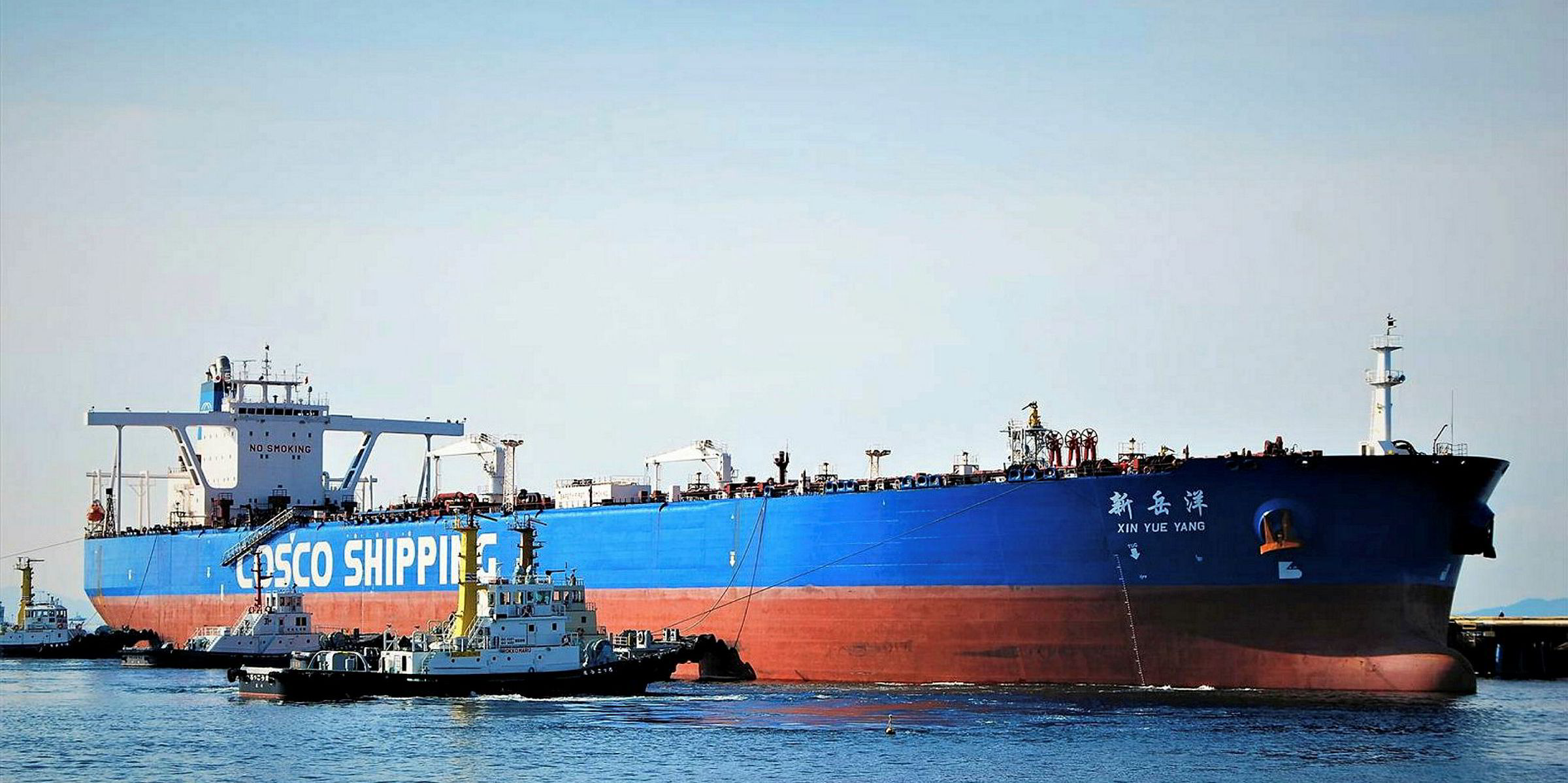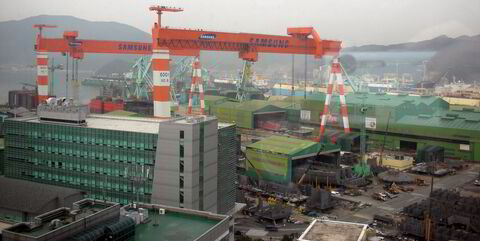Cosco Shipping Energy Transportation (CSET) reported lower emissions of key pollutants last year amid decreased freight volume after one of its main subsidiaries was sanctioned by the US.
In its latest annual corporate social responsibility report, the Shanghai- and Hong Kong-listed tanker owner said CO2 emissions from its oil tanker fleet fell to 3.03m tonnes from 3.22m tonnes in 2018.
NOx emissions dropped to about 84,800 tonnes from 90,100 tonnes, while SOx emissions decreased to 58,5000 tonnes from 62,100 tonnes.
“We are completely aware that the energy we transport comes from nature, and the transport and utilisation of energy have environmental impacts,” the tanker subsidiary of state conglomerate China Cosco Shipping said.
“We advocate and lead lower-carbon and more eco-friendly technological reform and management innovation, and work with stakeholders to promote the green development of the shipping industry, fulfilling our mission to be a leader in green shipping.”
The lower emissions figures came as CSET’s freight volume dropped to 150m tonnes last year from 155m tonnes in 2018.
In September, the US put Cosco Shipping Tanker (Dalian) on the sanctions list for allegedly transporting Iranian oil.
As the sanctions were only lifted on 31 January, Cosco Dalian's 42 tankers, including 26 VLCCs, was mostly out of international trading for the final quarter of last year.
On a per-unit basis, CSET’s CO2, NOx and SOx emissions per tonne-mile increased by 8% to 14% last year as its fleet aged.
With the pace of fleet renewal slower than natural ageing, the average age of CSET’s tankers increased to 9.4 years from 8.5 years.
“[The company] has formulate a high standard environmental management system and detailed measures and procedures to manager the identified environmental impact factors,” CSET said.
“We have proposed management standards that are compliant with and even more stringent than international conventions to minimise environmental impacts from navigation.”
CSET has vowed to stay in line with the IMO’s decarbonisation targets, which are to cut carbon intensity by 40% before 2030 and halve total greenhouse gas emissions in 2050.





